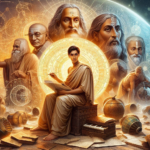In today’s interconnected world, the education of young minds is more crucial than ever. One of the most significant components of a comprehensive education is the teaching of history. However, the way history is taught varies greatly from one country to another. In some regions, historical narratives are manipulated to serve nationalistic agendas, leading to a biased understanding of the past. This lack of proper historical education not only distorts students’ perception of their own country but also hinders their ability to engage critically with the world. As more students seek education abroad, these discrepancies become glaringly apparent, often resulting in a mockery of their historical understanding on international platforms. This article explores the necessity of teaching unbiased history, examines the consequences of a skewed historical curriculum, and highlights examples from various countries.
The Importance of Teaching Unbiased History
Interviews with Educators, Historians, and Students
Interview with an Educator from Japan
Interviewer: Can you describe the current state of history education in Japan?
Educator: In Japan, the curriculum often emphasizes the positive aspects of our history, particularly during World War II. The atrocities committed by Japanese forces are sometimes downplayed or omitted. This creates a skewed perception among students who are not fully aware of the complexities and consequences of our actions during the war.
Interviewer: How does this affect students when they study abroad?
Educator: Many Japanese students face difficulties when they study abroad because they encounter a more comprehensive and often critical perspective of Japan’s wartime actions. This can be quite a shock and leads to a feeling of embarrassment or defensiveness.
Interview with a Historian from Germany
Interviewer: How has Germany approached teaching its difficult past, particularly the Holocaust?
Historian: Germany has taken a very open and reflective approach. Our education system emphasizes the importance of acknowledging and understanding the atrocities committed during the Holocaust. This has fostered a culture of remembrance and critical reflection, which is essential for ensuring that such events are never repeated.
Interviewer: What can other countries learn from Germany’s approach?
Historian: Transparency and honesty are crucial. Confronting the darkest parts of history head-on helps build a more informed and empathetic society. Other countries should strive for this level of openness in their curricula.
Interview with a Student from Pakistan
Interviewer: How do you feel about the history education you received in Pakistan?
Student: The history we were taught in school was very one-sided, especially regarding our conflicts with India. It wasn’t until I started my studies abroad that I realized there were many perspectives and events that were either misrepresented or omitted entirely in our textbooks.
Interviewer: How has this affected your academic and social experiences abroad?
Student: It was quite challenging at first. My peers often had a much broader understanding of the events that shaped our region. I had to do a lot of independent reading and research to catch up and develop a more balanced view of history.
Exploring the Historical Context Behind Biased Curricula
Nationalism and Historical Narratives
- Post-War Japan: After World War II, Japan’s education system was restructured under American occupation, but national pride influenced the way history was taught. The need to rebuild a national identity led to a curriculum that often glossed over wartime atrocities.
- Post-Colonial Turkey: In Turkey, the denial of the Armenian Genocide is deeply tied to national identity and political stability. Acknowledging the genocide would challenge the foundational myths of the Turkish Republic.
- China’s Communist Party: The Chinese Communist Party’s control over historical narratives is a tool to maintain its legitimacy. By emphasizing the Party’s achievements and downplaying its failures, the government seeks to reinforce its authority.
Political Implications of Historical Bias
- National Unity: Biased historical education can be used as a tool to foster national unity and pride. However, this often comes at the cost of critical thinking and an accurate understanding of the past.
- International Relations: The way history is taught can influence a country’s international relations. For instance, Japan’s portrayal of its wartime actions has been a point of contention with its neighbors, particularly China and South Korea.
- Internal Politics: In many countries, historical narratives are manipulated to serve current political agendas. This can lead to a populace that is less informed and more susceptible to propaganda.
The Role of Media, Literature, and Public Discourse in Shaping Historical Narratives
Media’s Influence on Historical Understanding
- News Outlets: Media can play a significant role in shaping public perceptions of history. Biased reporting and selective coverage can reinforce skewed historical narratives.
- Documentaries and Films: Visual media such as documentaries and films have a powerful impact on how history is perceived. They can either challenge or reinforce existing biases.
Literature as a Tool for Historical Reflection
- Novels and Memoirs: Literature provides a platform for diverse voices and perspectives. Novels and memoirs can offer insights into historical events that are often excluded from official curricula.
- Historical Fiction: While not always accurate, historical fiction can spark interest in historical topics and encourage readers to explore them further.
Public Discourse and Historical Narratives
- Public Debates: Public discourse, including debates and discussions, can challenge historical biases and promote a more nuanced understanding of the past.
- Social Media: Platforms like Twitter and Facebook allow for the rapid dissemination of information and can be used to highlight historical inaccuracies and promote diverse perspectives.
The teaching of history is not just about recounting past events; it is about shaping the minds of future generations. An unbiased and comprehensive history education is crucial for fostering informed, critical, and empathetic global citizens. While many countries have made strides towards this goal, there is still much work to be done. By acknowledging and addressing the biases in historical education, we can create a more just and understanding world.












